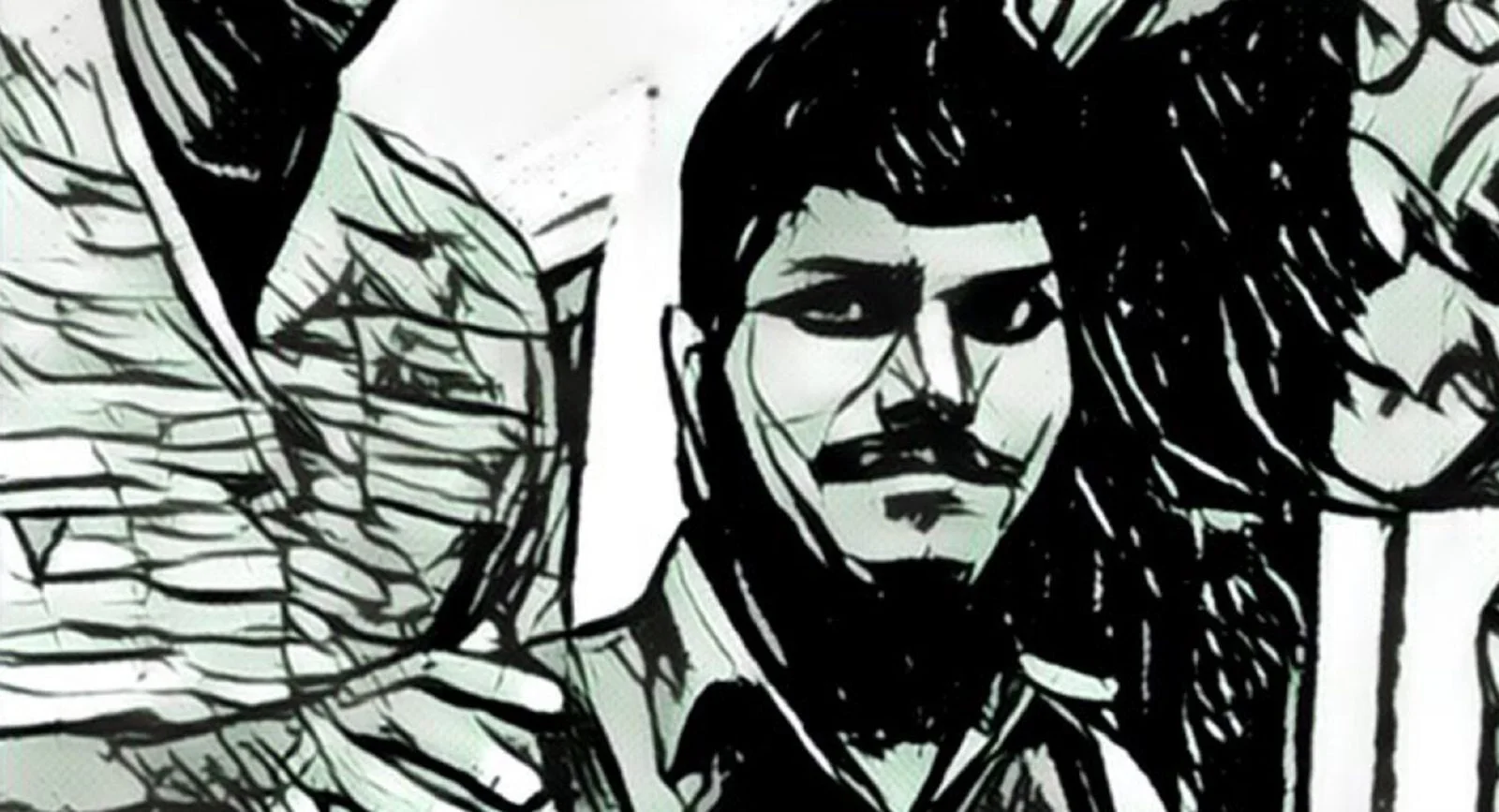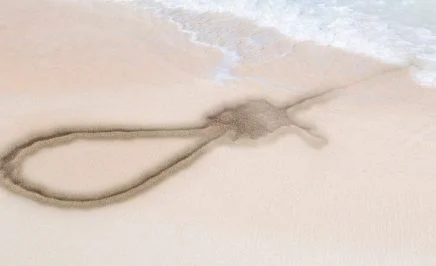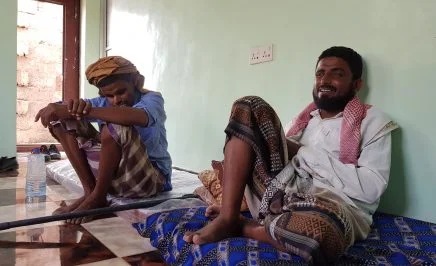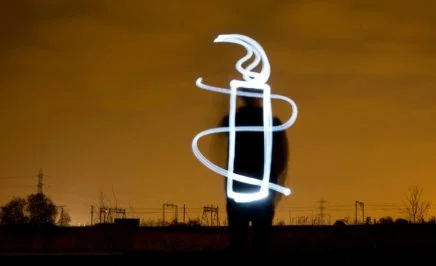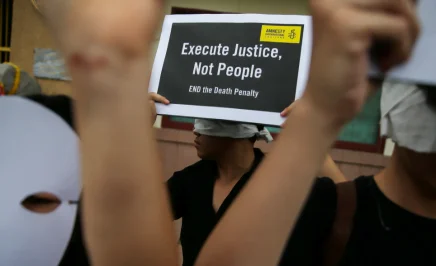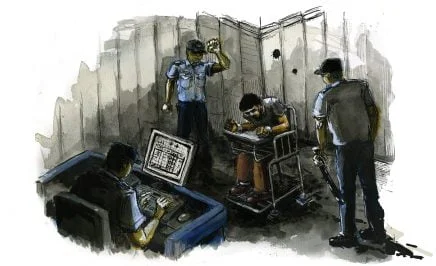We urge the Maldives authorities to immediately halt plans to carry out the execution of Hussain Humaam Ahmed (Humaam) and to commute his, and all other, existing death sentences in Maldives.
Early in the morning of 24 June 2016, the Maldives Supreme Court upheld the death sentence against Humaam for the murder of MP Afrasheem Ali in 2012. His execution could be imminent as the current government under President Abdulla Yameen has pledged to hang death row inmates within 30 days of the Supreme Court upholding guilty verdicts.
If Humaam is sent to the gallows, it would be the first execution in Maldives for more than 60 years. The current government began taking steps to resume executions in 2014, when it introduced regulations to change the method of execution to lethal injection and remove the power of clemency from the President.
If Humaam is sent to the gallows, it would be the first execution in Maldives for more than 60 years.
After failing to source the chemicals needed for lethal injections, the government of Maldives then decided to change its method of execution to hanging, as announced by the ex-Home Minister Umar Naseer. The regulations were amended on 29 June to reflect this decision.
Under the regulations, the victim’s family (of the crime) has the power to pardon the accused in a death penalty case. The father and brother of Afrasheem Ali asked the Supreme Court on 23 June to delay the implementation of the death sentence of Humaam, citing an “incomplete investigation” into the circumstances of his murder. The Court, however, refused to accept the letter since it had been submitted outside of normal working hours and upheld the death sentence for Humaam on 24 June.
According to international human rights standards, people charged with crimes punishable by death are entitled to the strictest observance of all fair trial guarantees and to certain additional safeguards. However, concerns about the unfairness of the proceedings against Humaam, several of which have been documented in a report by the NGO Maldives Democracy Network, have not been addressed.
These include:
- Despite Humaam retracting a pre-trial confession to Dr Afrasheem’s murder, which he has insisted was made due to fear for the safety of his family members, the trial court took into account this “confession” in its guilty verdict. This violates Article 14 (3) (g) of the International Covenant on Civil and Political Rights (ICCPR), to which Maldives is a state party and which states that no one should be compelled to testify against himself or to confess guilt, as well as Article 52 of the Maldivian Constitution, which only allows statements made in court as admissible evidence.
- Humaam and his family maintain that he has a mental disability and have requested an independent psychiatric evaluation to assess his mental health status. As far as his legal team and family are aware, no such evaluation has taken place nor were the findings of it provided in court. International law prohibits the use of the death penalty against people with mental disabilities. Furthermore, his family believe that his mental disability directly affected his capacity to support his legal representatives in the overall effectiveness of his defence. At points during the proceedings Humaam told the court that he did not want a legal representative and denied his own retraction of the self-incriminating statement he made in pre-trial detention.
Humaam’s death sentence constitutes an emblematic example of concerns Amnesty International and other organizations have been documenting on the use of the death penalty in the Maldives. According to statistics from the Maldives Correction Services, a total of 17 prisoners are currently under sentence of death in the country. Of these, at least five were convicted and sentenced to death for crimes committed when they were below 18 years of age. International customary law and two international treaties to which the Maldives is a state party prohibit the use of the death penalty against juvenile offenders.
According to statistics from the Maldives Correction Services, a total of 17 prisoners are currently under sentence of death in the country. Of these, at least five were convicted and sentenced to death for crimes committed when they were below 18 years of age.
Amnesty International is further concerned at media reports indicating that retracted statements were admitted as evidence at trial and that the proceedings were unfair in other cases of those currently facing the death penalty, claims that do not appear to have been adequately investigated by the authorities. The imposition of the death penalty where the proceedings do not adhere to the highest standards of fair trial constitutes arbitrary deprivation of life.
In addition to Humaam’s case, the Supreme Court has recently finalised hearings in two other murder cases and is expected to deliver its final verdicts soon, potentially opening the door for further executions if found guilty. It is alarming that President Yameen has claimed that the resumption of executions is necessary to maintain public safety and law and order. Studies have consistently failed to show that the death penalty is more of a deterrent to crime than other punishments.
Amnesty International opposes the death penalty in all cases without exception, regardless of the nature or circumstances of the crime. A resumption of the death penalty in Maldives would be a seriously regressive step for human rights. The world is moving away from the death penalty – today, 140 states are abolitionist in law or practice, and a majority of the world’s countries (103) have now abolished the death penalty fully from their legal books.
Amnesty International urges the Maldives authorities to immediately:
- Halt any plans to resume executions and establish an official moratorium on all executions, with a view to abolishing the death penalty;
- Immediately commute the death sentence against Humaam and all other prisoners under sentence of death, including those imposed for crimes committed when the prisoners were below 18 years of age;
- In view of the concerns raised about his retracted statement and his mental disability and its potential impact on his ability to defend himself, give serious and thorough consideration to whether Humaam should be given a retrial that fully complies with international law and standards on fair trial standards without, resorting to the death penalty;
- Amend national legislation to remove provisions that are not in line with international law and standards and abolish the death penalty for all crimes.
